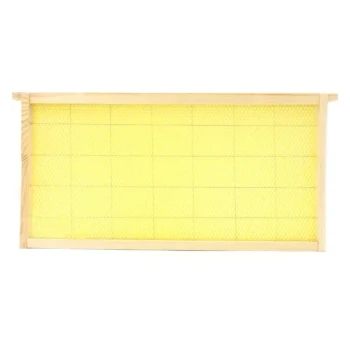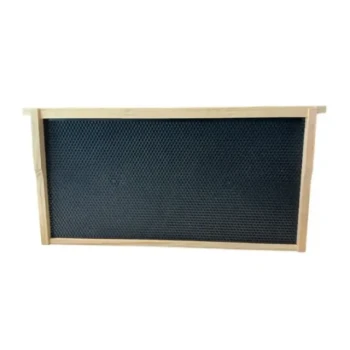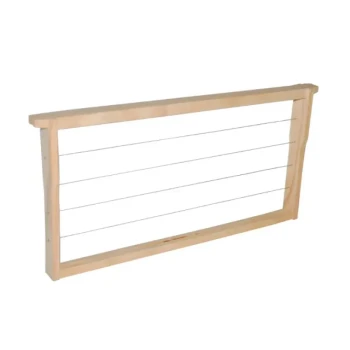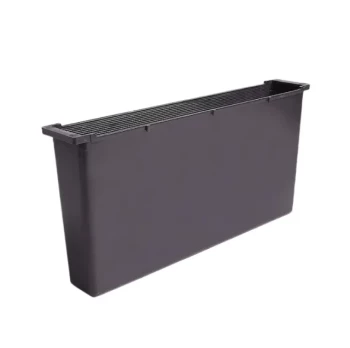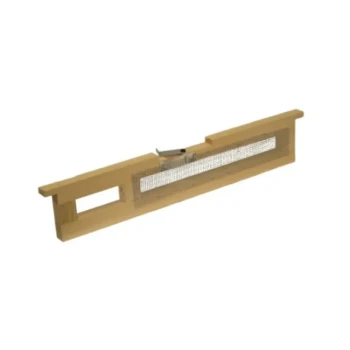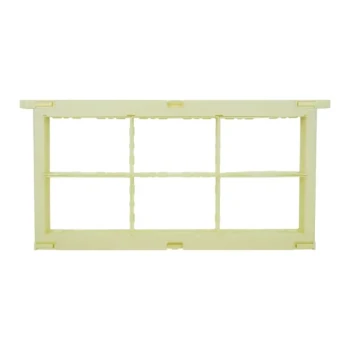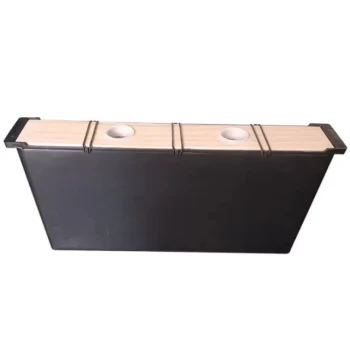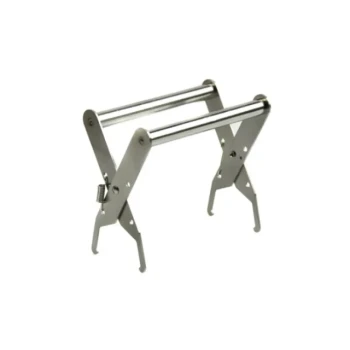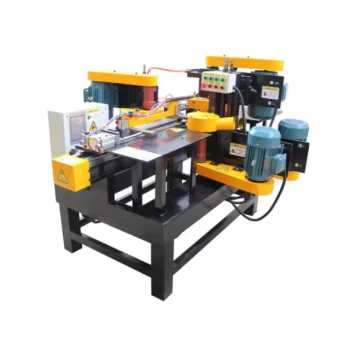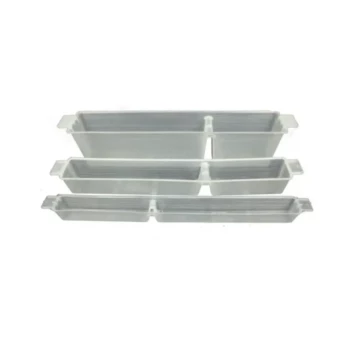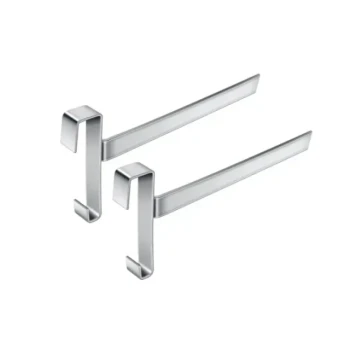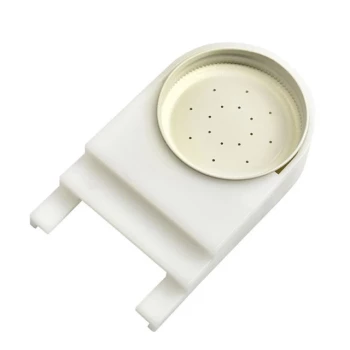Choosing the right frame size is a foundational decision in beekeeping that directly impacts both your bees' productivity and your own physical effort. In a standard Langstroth hive, deep frames are most commonly used for the brood chamber where the queen lays eggs, medium frames serve as a versatile option for either brood or honey, and shallow frames are used almost exclusively as lightweight honey supers. This division of labor is based on a critical trade-off between hive volume and manageable weight.
The decision between deep, medium, and shallow frames is not just about hive configuration. It is a strategic choice that balances the queen's need for laying space against the beekeeper's ability to lift and manage heavy boxes of honey.
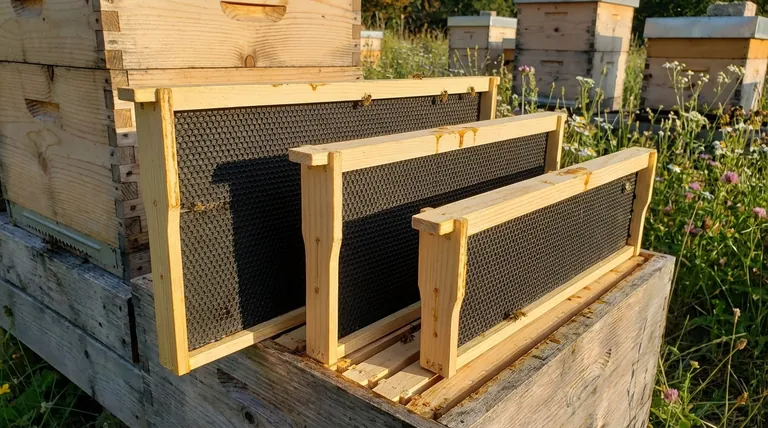
A Deep Dive into Frame Sizes
The terms "deep," "medium," and "shallow" refer to the height of the frame and the corresponding box (or "super") it fits into. While the length and width remain consistent to allow for stacking, the height difference is the defining factor.
Deep Frames (9 1/8"): The Brood Chamber Standard
Deep frames are the traditional choice for the brood chamber—the lower boxes of the hive dedicated to raising new bees.
A deep frame provides a large, continuous canvas of comb. This allows the queen to lay her eggs in a solid, uninterrupted pattern, which closely mimics the structure of a nest in the wild and supports a robust, populous colony.
While a deep box can be used for honey collection, it is often avoided for this purpose. A deep super filled with honey can weigh 80-90 pounds, making it extremely difficult and hazardous to lift.
Medium Frames (6 1/4"): The Versatile Workhorse
Medium frames represent the flexible middle ground and are the most popular choice for honey supers.
Their reduced size means a full medium super weighs around 50-60 pounds—a significant and welcome reduction from a deep. This makes them far more manageable during honey harvesting.
Some beekeepers choose to run their entire hive on medium frames, including the brood chamber. This creates a completely interchangeable system where any frame can fit in any box, simplifying equipment management.
Shallow Frames (5 3/8"): The Honey Specialist
Shallow frames are used almost exclusively for honey supers and are the lightest option available.
A full shallow super typically weighs 35-40 pounds, making it the easiest to handle. This is especially beneficial for beekeepers with physical limitations or those who simply wish to minimize strain.
Because of their limited height, shallow frames are not recommended for brood chambers. A queen confined to shallow frames may feel restricted, leading to a smaller brood area and an increased likelihood of swarming.
The Critical Factor: Weight vs. Space
Your choice of frame size fundamentally comes down to managing the balance between giving the bees adequate space and ensuring you can physically manage the hive.
The Beekeeper's Burden
The weight of a full honey super is the single most important practical consideration. Lifting heavy, awkward boxes is a primary cause of strain and injury for beekeepers.
- Deep Super: 80-90 lbs (36-41 kg)
- Medium Super: 50-60 lbs (23-27 kg)
- Shallow Super: 35-40 lbs (16-18 kg)
This stark difference in weight is why most beekeepers use medium or shallow supers for honey, even if they use deeps for brood.
The Queen's Perspective
A healthy colony needs a large, cohesive brood nest. A deep frame setup (either one or two deep boxes) provides this with minimal interruption.
Using medium frames for the brood chamber requires the queen to "cross the gap" between boxes to continue her laying pattern. While bees manage this perfectly well, it is a slight deviation from a single, massive comb structure.
Understanding the Trade-offs
There is no single "best" system; each approach has distinct advantages and disadvantages.
The Simplicity of a Single-Size System
Many beekeepers standardize on all-medium equipment. The primary benefit is interchangeability. Every frame and every box is identical, which drastically simplifies purchasing, building, and managing inventory.
The trade-off is that you need more boxes to create a brood chamber equivalent to a deep-box setup (roughly three mediums to equal two deeps).
The Efficiency of a Mixed-Size System
The classic configuration uses deep boxes for brood and medium or shallow boxes for honey. This system is optimized for both bee biology and beekeeper ergonomics.
This approach gives the queen an ideal laying space while ensuring the boxes you harvest are a manageable weight. The primary disadvantage is needing to own and organize two or three different sizes of equipment.
Material Considerations: Wood vs. Plastic
Frames are available in both wood and plastic. Wooden frames are traditional, can be built or repaired, and allow for different types of wax foundation. Plastic frames are durable, easy to clean, and often come with a pre-molded foundation, saving time. The choice often comes down to beekeeper philosophy and preference.
Making the Right Choice for Your Apiary
To select the best system, evaluate your personal goals and physical capabilities.
- If your primary focus is maximum simplicity: Standardize on all medium-sized equipment for total interchangeability of all hive parts.
- If your primary focus is emulating a natural brood nest and you can handle heavy lifting: Use deep boxes for your brood chamber and lighter medium or shallow boxes for honey.
- If your primary focus is minimizing weight at all costs: Use medium boxes for the brood chamber and shallow boxes for your honey supers.
Ultimately, the best hive configuration supports your bees' needs while fitting your personal beekeeping goals and physical abilities.
Summary Table:
| Frame Size | Height | Primary Use | Full Super Weight (Approx.) |
|---|---|---|---|
| Deep | 9 1/8" | Brood Chamber | 80-90 lbs (36-41 kg) |
| Medium | 6 1/4" | Brood or Honey (Versatile) | 50-60 lbs (23-27 kg) |
| Shallow | 5 3/8" | Honey Supers (Lightweight) | 35-40 lbs (16-18 kg) |
Ready to Build Your Ideal Hive Configuration?
Choosing the right frames is crucial for a productive apiary and a sustainable beekeeping practice. HONESTBEE supplies high-quality beekeeping supplies and equipment—including deep, medium, and shallow frames—to commercial apiaries and beekeeping equipment distributors through our wholesale-focused operations.
We help you balance bee biology with beekeeper ergonomics. Let us provide the durable, reliable equipment your operation needs to thrive.
Contact HONESTBEE today to discuss your wholesale frame and equipment requirements!
Visual Guide
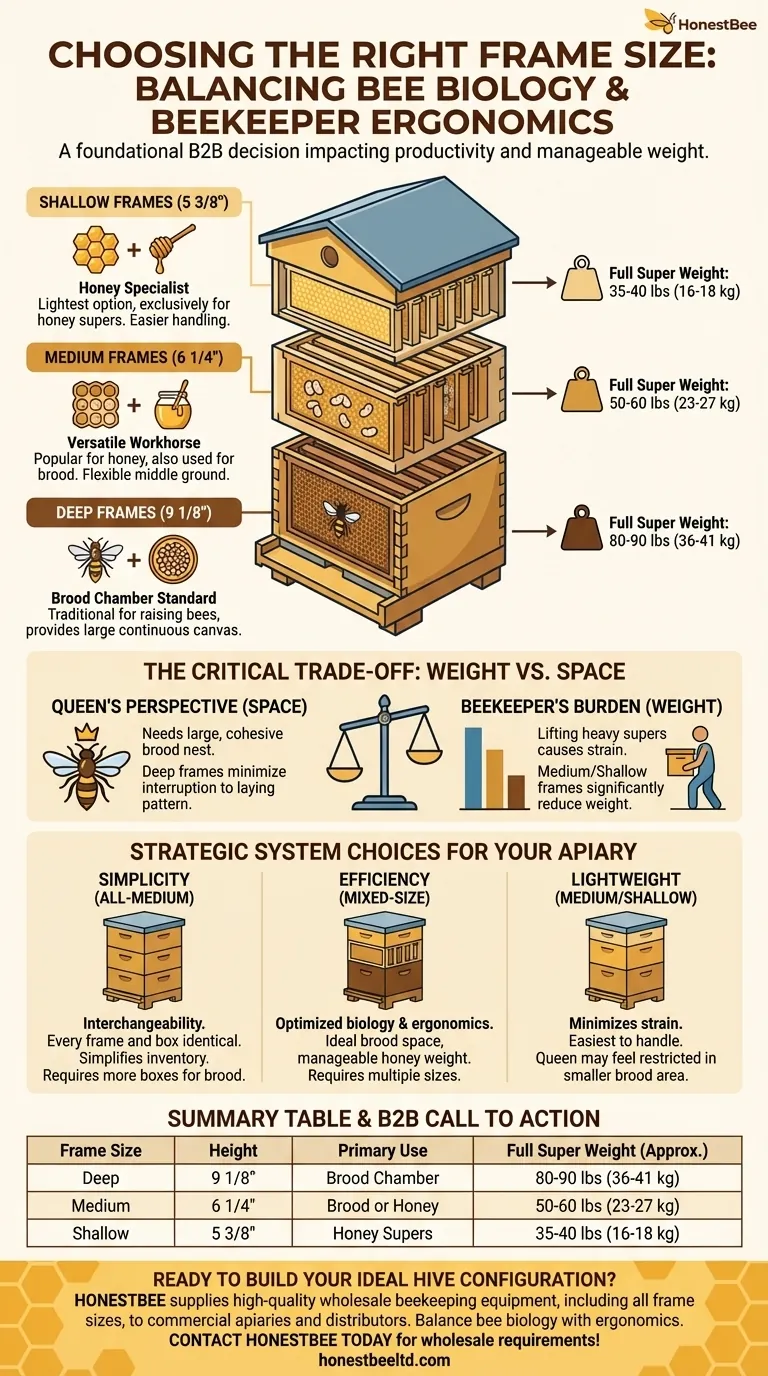
Related Products
- Plastic Bee Frame Beekeeping Hive Frames for Wholesale
- Assembled Wooden Bee Frames with Beeswax Foundation Ready to Use by HONESTBEE
- Assembled Wooden Bee Frames with Plastic Foundation for Durability and Convenience by HONESTBEE
- 7 x Auto Bee Flow Hive Frames Plastic Beekeeping Hive Box Supplies
- Plastic Honey Comb Frames Cassette Box for Honey
People Also Ask
- Can you boil plastic bee frames? Avoid This Costly Mistake and Protect Your Hive
- Can beekeepers switch between wooden and plastic frames? Optimize Your Hive's Performance
- What are the mechanical and acoustic characteristics of a one-piece plastic frame and foundation? Strength vs. Sound
- What are the differences between wooden and plastic frames in beehives? Choose the Best for Your Apiary
- Why are plastic frames popular in commercial beekeeping? Boost Efficiency & Durability at Scale

